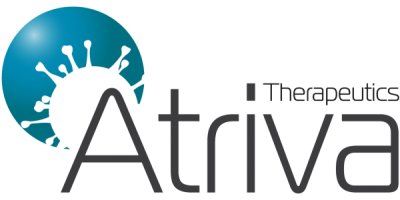

- Home
- Companies
- Atriva Therapeutics GmbH
- News
- Atriva Therapeutics announces efficacy ...
Atriva Therapeutics announces efficacy of its lead compound zapnometinib against Omicron
- Strong preclinical evidence of universal efficacy of zapnometinib against coronavirus variants of concernProf. Planz will continue to serve Atriva as Chairman of the Scientific Advisory Board
- The findings underscore the importance of new therapeutic approaches such as zapnometinib, which can maintain potent efficacy against all coronavirus strains, including Omicron
Atriva Therapeutics GmbH, a biopharmaceutical company pioneering the development of host-targeting antiviral therapies, presents results demonstrating strong efficacy of their lead compound zapnometinib against the Omicron strain of SARS-CoV-2.
”I am very pleased that we were able to react fast and show an antiviral effect of zapnometinib in our own laboratories after the emergence of the Omicron variant. This strong efficacy has been confirmed externally by a contract research organization in Rotterdam. Our results provide strong evidence of a universal efficacy of zapnometinib against coronavirus variants of concern,” said Prof. Dr. Oliver Planz, CSO of Atriva Therapeutics.
“Omicron exposes limitations of antiviral monoclonal antibody therapy in COVID-19 – a clear opportunity for host-cell directed drugs like zapnometinib. Atriva are currently conducting a Phase 2 study in hospitalized patients with moderate-to-severe COVID-19. In this trial, we expect to generate data that will highlight the broad therapeutic potential of our lead compound zapnometinib, a dual-effect MEK-inhibitor that is expected to work against all existing variants of SARS-CoV-2. In addition, zapnometinib will not be vulnerable to those antiviral resistance issues that keep monoclonal antibodies from being more effective,” commented Dr. Stephan Stenglein, CMO of Atriva Therapeutics.
The Omicron variant carries more than 30 spike protein mutations versus previous variants such as Delta. These changes are associated with increased infectivity and confer the potential to evade the host antibody immune response induced by previous vaccinations or infections (“escape mutations”). While Omicron is relatively less pathogenic than previous variants like Delta, it remains a lethal threat to those patients who cannot be vaccinated or have a combination of risk factors including advanced age or immunodeficiency. Due to the high number of escape mutations in Omicron, previous vaccinations may be less protective against this variant of SARS-CoV-2.
Partial or complete loss of efficacy against Omicron is also seen for nearly all of the previously approved monoclonal antibody (MAb) therapies. The current NIH COVID-19 treatment panel recommendations[1] include only two MAb treatments: sotrovimab (Vir/GSK, which is short in supply), and bebtelovimab (Eli Lilly, as an alternative option only if no other treatments are available). Very recently, the US FDA further restricted the use of sotrovimab due to its ineffectiveness against the widespread BA.2 sub-variant of Omicron.[2] Other MAb therapies – including casirivimab/imdesimab (Regeneron) – are viewed as not effective against the current variant and are also unlikely to have relevant clinical treatment effects with any future variants of SARS-CoV-2.
MAb therapies in patients with COVID-19 are primarily directed against the spike protein on the surface of SARS-CoV-2. This protein mediates viral attachment to the host cell and represents a major target of the adaptive host immune response. The problematical loss of efficacy of MAbs against new strains of SARS-CoV-2 highlights the importance of new therapeutic approaches such as zapnometinib, which can maintain strong efficacy against all viral strains including Omicron.
